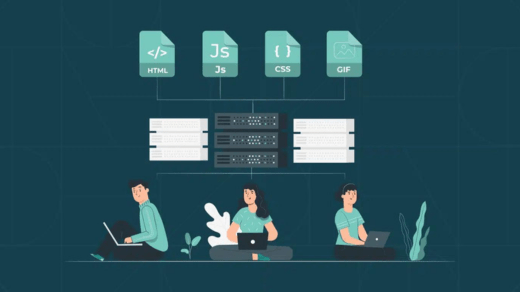
As technology evolves, so does the field of web hosting. Emerging technologies are shaping the future of web hosting in exciting ways. Here are 30 points discussing the pros and cons of these emerging technologies and their impact on the future of web hosting:
1. Edge Computing:
- Pros: Faster content delivery, reduced latency.
- Cons: Infrastructure and management complexity.
2. Serverless Hosting:
- Pros: Cost efficiency, automatic scaling.
- Cons: Limited control, potential latency.
3. Quantum Computing:
- Pros: Unprecedented computing power.
- Cons: Security challenges, high cost.
4. Artificial Intelligence (AI):
- Pros: Improved security, automated support.
- Cons: Ethical concerns, potential job displacement.
5. Blockchain Technology:
- Pros: Enhanced security, decentralized hosting.
- Cons: Scalability issues, complexity.
6. 5G Connectivity:
- Pros: Faster data transfer, reduced latency.
- Cons: Limited coverage, infrastructure costs.
7. Internet of Things (IoT) Hosting:
- Pros: Hosting for IoT devices and applications.
- Cons: Security vulnerabilities, resource demands.
8. Containerization (e.g., Docker):
- Pros: Portability, resource efficiency.
- Cons: Learning curve, potential complexity.
9. Green Hosting Solutions:
- Pros: Environmentally friendly, cost savings.
- Cons: Limited adoption, potential cost barriers.
10. 3D Web and VR Hosting: – Pros: Immersive experiences, new web opportunities. – Cons: Limited audience, bandwidth demands.
11. Augmented Reality (AR): – Pros: Enhanced content, marketing opportunities. – Cons: Limited adoption, development complexity.
12. Microservices Architecture: – Pros: Scalability, flexibility. – Cons: Management complexity, potential overhead.
13. Hybrid Cloud Hosting: – Pros: Scalability, data redundancy. – Cons: Integration challenges, potential cost.
14. Serverless Databases: – Pros: Scalability, reduced maintenance. – Cons: Limited control, potential vendor lock-in.
15. Internet Security Advancements: – Pros: Enhanced protection against cyber threats. – Cons: Growing sophistication of cyberattacks.
16. AI-Driven Automation: – Pros: Streamlined operations, improved efficiency. – Cons: Job displacement, ethical concerns.
17. Container Orchestration (e.g., Kubernetes): – Pros: Scalability, resource optimization. – Cons: Complexity, learning curve.
18. Data Privacy Regulations: – Pros: Improved user data protection. – Cons: Compliance challenges, potential fines.
19. Progressive Web Apps (PWAs): – Pros: Improved user experience, lower development costs. – Cons: Limited native features, browser compatibility.
20. Voice Search Optimization: – Pros: Enhanced SEO, new user interaction. – Cons: Evolving technology, SEO complexities.
21. Zero-Trust Security Model: – Pros: Improved security posture, reduced risks. – Cons: Implementation challenges, potential complexity.
22. Serverless Containers: – Pros: Easy scaling, cost savings. – Cons: Limited control, potential latency.
23. 6G Connectivity (Future): – Pros: Extreme speed and connectivity improvements. – Cons: Long-term deployment, infrastructure costs.
24. AI-Enhanced Customer Support: – Pros: Improved user experience, reduced response times. – Cons: Privacy concerns, limited human touch.
25. Quantum-Safe Encryption: – Pros: Protection against quantum threats. – Cons: Limited practical deployment, complexity.
26. Edge AI Processing: – Pros: Real-time decision-making, reduced latency. – Cons: Hardware and resource demands.
27. Sustainable Data Centers: – Pros: Lower carbon footprint, cost savings. – Cons: Transition costs, limited adoption.
28. Enhanced API Management: – Pros: Improved integration, flexibility. – Cons: Security risks, API vulnerabilities.
29. Augmented Analytics: – Pros: Data-driven insights, automation. – Cons: Data privacy concerns, accuracy challenges.
30. Neural Networks and Deep Learning: – Pros: Advanced pattern recognition, AI capabilities. – Cons: Resource-intensive, complex development.
Emerging technologies are reshaping web hosting, offering new opportunities for speed, security, and efficiency. While these technologies come with their challenges and complexities, they hold the promise of a more advanced and dynamic web hosting landscape in the future. Adapting to these trends will be essential for hosting providers and businesses to stay competitive and deliver exceptional online experiences.
